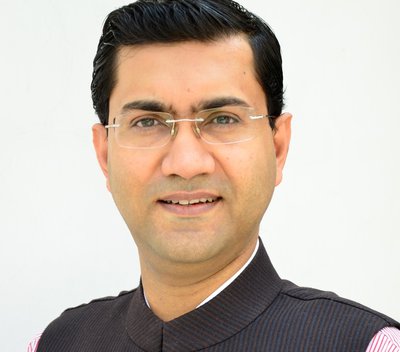19 Jun 2015
MILE Alumni Profiles: Santanu Mukherjee
"The MILE's contribution undoubtedly is unique... it has significantly enhanced my career profile."
To mark the 15th anniversary of the Master of International Law and Economics (MILE) programme in 2015, we spoke to a graduate of the very first intake. Santanu Mukherjee is a senior attorney with Qualcomm's Legal & Government Affairs department in California, USA, and is based at the Gurgaon office of Qualcomm India Pvt. Ltd. He previously practised law at the Calcutta High Court, interned at the WTO and worked as a consultant on intellectual property and trade policy issues in Geneva.
You were part of the very first MILE intake. What was that like? Did you have a sense of being part of something new and pioneering? Indeed, I was in MILE one. It was a completely new experience; it was unique, a dual discipline curriculum with sometimes an economist and a lawyer delivering lectures jointly. Other features were the perspectives of international civil servants, debates enriched by facts and data, and not least, the multicultural feeling with fellow students from nearly all over the world.
That was 15 years ago. How would you say the MILE has shaped your career since? Sometimes I don't realise that 15 years have flown past! The MILE's contribution undoubtedly is unique. It has fine-tuned my professionalism and domain expertise which has significantly enhanced my career profile. Tell us about the work you do now As an in-house lawyer of the legal and government affairs department at Qualcomm, I manage different legal, regulatory and legal policy issues in India and South Asia as a part of a global team. My work involves a great deal of policy analysis, regulatory advise and providing strategic leadership on different legal and policy issues but with a special focus on intellectual property rights, competition law and international trade. To what extent have you kept in touch with the WTI over the years? I would like to make clear that for me, the WTI does not mean just the institute, it includes my educators, the personnel who facilitated my everyday life at the institute, my friends and fellow students, the present personnel and also pupils from later MILE batches. I am happy that am involved with the WTI on a regular basis, both through regular interactions with all these groups as well as partnering and facilitating their work to a certain extent. What advice would you give to current MILE students or those considering embarking on the programme? One needs to be structured for the trimesters. A good preparation for the introductory session would help in coping with the dual discipline approach. In general students gain most if they involve themselves in the class discussions and debates rather than being silent members of the class. In the last trimester they need an additional focus on post-MILE initiatives, as to how they can utilise the knowledge gained and new relationships developed - whether they seek new openings or want to further develop their pre-MILE career.


